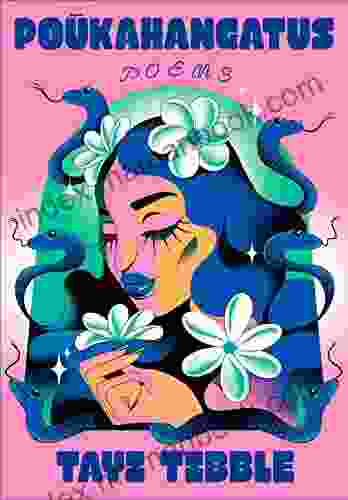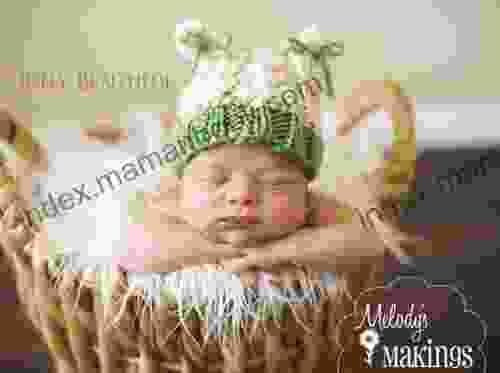Poukahangatus Poems: An Exploration of Emotion and Identity

Poukahangatus Poems by Phyllis Cole Dai is a powerful and moving collection that explores the themes of emotion, identity, and place. The poems are written in a variety of forms, including free verse, haiku, and prose poetry, and they draw on both Maori and Western traditions. Dai's language is rich and evocative, and her imagery is both beautiful and haunting.
4.4 out of 5
| Language | : | English |
| File size | : | 4407 KB |
| Text-to-Speech | : | Enabled |
| Print length | : | 96 pages |
Emotion
One of the most striking things about Poukahangatus Poems is its exploration of emotion. Dai's poems capture the full range of human emotion, from love and joy to grief and despair. She writes about the pain of loss, the joy of motherhood, and the complexities of relationships.
In the poem "Elegy for a Stillborn Child," Dai mourns the loss of her unborn child. The poem is full of raw emotion, as Dai expresses her grief and her longing for her child. The poem ends with a powerful image of the child's spirit being carried away by the wind.
I held you in my arms,
A tiny, perfect form,
But you were not meant to be.
Your spirit took flight,
Carried away by the wind.
I am left with only memories,
And the pain of what might have been.
In contrast to the grief expressed in "Elegy for a Stillborn Child," the poem "Song for a New Mother" celebrates the joy of motherhood. The poem is full of love and tenderness, as Dai describes the bond between a mother and her child.
My little one, my precious child,
I love you more than words can say.
Your tiny hands, your sweet smile,
Fill my heart with joy.
I will always be there for you,
To love and protect you,
To help you grow and learn.
You are my everything.
Dai's poems also explore the complexities of relationships. In the poem "Love and Loss," she writes about the pain of a broken heart. The poem is full of anger and bitterness, as Dai expresses her feelings of betrayal and abandonment.
I gave you my heart,
And you broke it.
You left me alone,
To pick up the pieces.
I hate you for what you did,
But I still love you.
I can't let go of the past,
Even though it's killing me.
Identity
In addition to exploring emotion, Poukahangatus Poems also explores the theme of identity. Dai's poems draw on her own experiences as a Maori woman, and she writes about the challenges and joys of living in a bicultural world.
In the poem "Who Am I?," Dai explores the question of identity. She writes about the different ways in which she is defined by others, and she struggles to find a sense of self that is both authentic and acceptable.
Who am I?
Am I the Maori girl that my parents raised?
Am I the Pakeha woman that I live among?
Am I both? Am I neither?
I am a mix of cultures,
A blend of two worlds.
I am a Maori woman, a Pakeha woman,
And I am proud of who I am.
In the poem "My Mother's Tongue," Dai writes about the importance of language to identity. She describes the way in which her mother's language shaped her own sense of self, and she celebrates the beauty and power of the Maori language.
My mother's tongue is a song,
A melody that flows through my veins.
It is the language of my ancestors,
The language of my heart.
I am proud to speak my mother's tongue,
To carry on the tradition.
It is a part of who I am,
And I will never let it die.
Place
The theme of place is also important in Poukahangatus Poems. Dai's poems are set in a variety of locations, including New Zealand, the United States, and England. She writes about the beauty of the natural world, and she explores the relationship between people and place.
In the poem "Aotearoa," Dai celebrates the beauty of her homeland, New Zealand. She describes the country's stunning landscapes, its rich culture, and its friendly people.
Aotearoa, my beautiful land,
Your mountains are majestic,
Your forests are ancient,
Your rivers are pure.
I am proud to call you home.
Your people are kind and welcoming,
Your culture is rich and vibrant.
I am grateful to live in such a beautiful land.
In contrast to the beauty of Aotearoa, the poem "London" describes the harsh reality of life in a big city. Dai writes about the poverty, the crime, and the loneliness that she experienced while living in London.
London, city of dreams,
City of nightmares.
I came here seeking a better life,
But I found only poverty and despair.
The streets are filled with homeless people,
And the crime rate is high.
I am lonely and afraid,
And I don't know how much longer I can take it.
Language, Imagery, and Symbolism
Dai's poems are not only rich in theme, but they are also rich in language, imagery, and symbolism. She uses a variety of literary devices to create a powerful and moving effect.
Dai's language is often lyrical and evocative. She uses vivid imagery to create a strong sense of place and atmosphere. For example, in the poem "Elegy for a Stillborn Child," Dai uses the image of the wind carrying away the child's spirit to create a sense of loss and longing.
Dai also makes effective use of symbolism. For example, in the poem "My Mother's Tongue," she uses the image of the mother's tongue as a symbol of identity and cultural heritage.
Poukahangatus Poems is a powerful and moving collection that explores the themes of emotion, identity, and place. Dai's poems are written in a variety of forms, and they draw on both Maori and Western traditions. Her language is rich and evocative, and her imagery is both beautiful and haunting. Poukahangatus Poems is a must-read for anyone interested in contemporary New Zealand poetry.
4.4 out of 5
| Language | : | English |
| File size | : | 4407 KB |
| Text-to-Speech | : | Enabled |
| Print length | : | 96 pages |
Do you want to contribute by writing guest posts on this blog?
Please contact us and send us a resume of previous articles that you have written.
 Top Book
Top Book Novel
Novel Fiction
Fiction Nonfiction
Nonfiction Literature
Literature Paperback
Paperback Hardcover
Hardcover E-book
E-book Audiobook
Audiobook Bestseller
Bestseller Classic
Classic Mystery
Mystery Thriller
Thriller Romance
Romance Fantasy
Fantasy Science Fiction
Science Fiction Biography
Biography Memoir
Memoir Autobiography
Autobiography Poetry
Poetry Drama
Drama Historical Fiction
Historical Fiction Self-help
Self-help Young Adult
Young Adult Childrens Books
Childrens Books Graphic Novel
Graphic Novel Anthology
Anthology Series
Series Encyclopedia
Encyclopedia Reference
Reference Guidebook
Guidebook Textbook
Textbook Workbook
Workbook Journal
Journal Diary
Diary Manuscript
Manuscript Folio
Folio Pulp Fiction
Pulp Fiction Short Stories
Short Stories Fairy Tales
Fairy Tales Fables
Fables Mythology
Mythology Philosophy
Philosophy Religion
Religion Spirituality
Spirituality Essays
Essays Critique
Critique Commentary
Commentary Glossary
Glossary Bibliography
Bibliography Index
Index Table of Contents
Table of Contents Preface
Preface Introduction
Introduction Foreword
Foreword Afterword
Afterword Appendices
Appendices Annotations
Annotations Footnotes
Footnotes Epilogue
Epilogue Prologue
Prologue Marquis De Sade
Marquis De Sade Gwen Tolios
Gwen Tolios Tembi Locke
Tembi Locke David Reich
David Reich Bradford Risbert
Bradford Risbert Duane Shinn
Duane Shinn Toby J Karten
Toby J Karten Rebekah Black
Rebekah Black A Zavarelli
A Zavarelli William Meikle
William Meikle Thomas Donahue
Thomas Donahue David Pagano
David Pagano Daniel Parsons
Daniel Parsons Pinoy Stitch
Pinoy Stitch Dominique Davis
Dominique Davis Aaron Oster
Aaron Oster Jane Bluestein
Jane Bluestein Alec Sheppard
Alec Sheppard Teju Akande
Teju Akande Ann Patchett
Ann Patchett
Light bulbAdvertise smarter! Our strategic ad space ensures maximum exposure. Reserve your spot today!
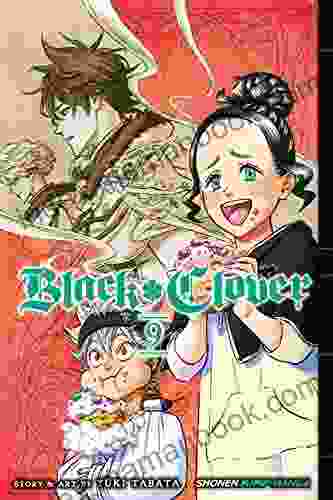
 Nathaniel HawthorneUnveiling the Secrets and Excitement of Black Clover Vol The Strongest...
Nathaniel HawthorneUnveiling the Secrets and Excitement of Black Clover Vol The Strongest...
 Reed MitchellHow to Sell $1,000,000 of Shave Ice: The Ultimate Guide to Shave Ice Success
Reed MitchellHow to Sell $1,000,000 of Shave Ice: The Ultimate Guide to Shave Ice Success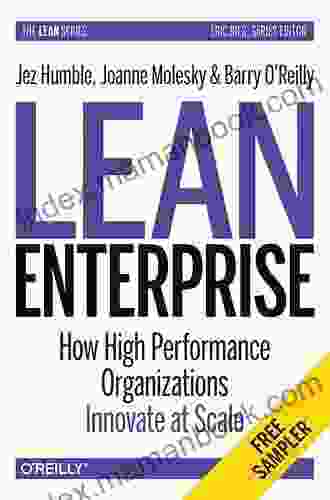
 Clark CampbellHow High Performance Organizations Innovate at Scale: A Comprehensive Guide
Clark CampbellHow High Performance Organizations Innovate at Scale: A Comprehensive Guide
 Dwight BlairClose Enough: Kate Fox's Novella Explores the Captivating and Chilling Depths...
Dwight BlairClose Enough: Kate Fox's Novella Explores the Captivating and Chilling Depths... Edgar HayesFollow ·3.9k
Edgar HayesFollow ·3.9k Jason ReedFollow ·3.2k
Jason ReedFollow ·3.2k Norman ButlerFollow ·7.4k
Norman ButlerFollow ·7.4k Willie BlairFollow ·19.7k
Willie BlairFollow ·19.7k Adrien BlairFollow ·12.3k
Adrien BlairFollow ·12.3k William WordsworthFollow ·7.3k
William WordsworthFollow ·7.3k Edgar CoxFollow ·9.7k
Edgar CoxFollow ·9.7k Neal WardFollow ·14.6k
Neal WardFollow ·14.6k

 Dwight Bell
Dwight BellSlightly Higher Interval Training For 5k Runners: A...
Interval training has become an...
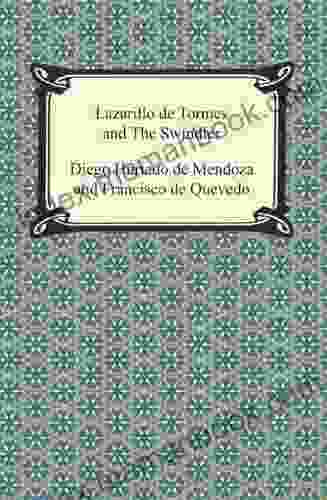
 Jordan Blair
Jordan BlairLazarillo de Tormes and the Swindler: A Tale of Deception...
The story of Lazarillo de...

 Grayson Bell
Grayson BellDelphi Complete Works Of James Thomson Illustrated Delphi...
: Unveiling the...
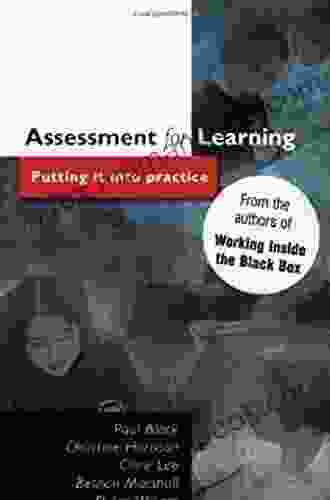
 Cooper Bell
Cooper BellAssessment For Learning (UK Higher Education OUP...
Assessment plays a crucial role in higher...

 Luke Blair
Luke BlairThis Is How Knew: A Comprehensive Guide to Unlocking Your...
Have you ever wondered if...
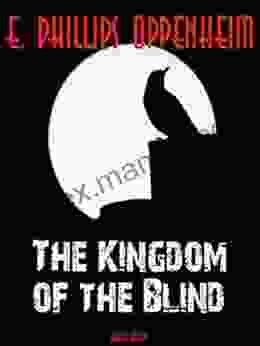
 Forrest Blair
Forrest BlairExploring the Kingdom of the Blind: A Deep Dive into an...
The Kingdom of the...
4.4 out of 5
| Language | : | English |
| File size | : | 4407 KB |
| Text-to-Speech | : | Enabled |
| Print length | : | 96 pages |


